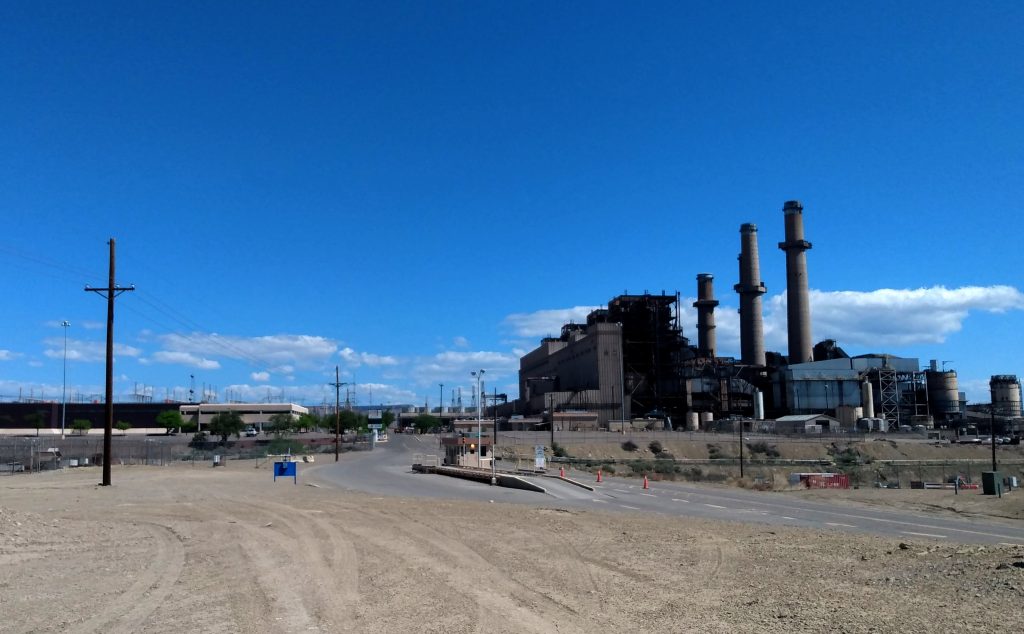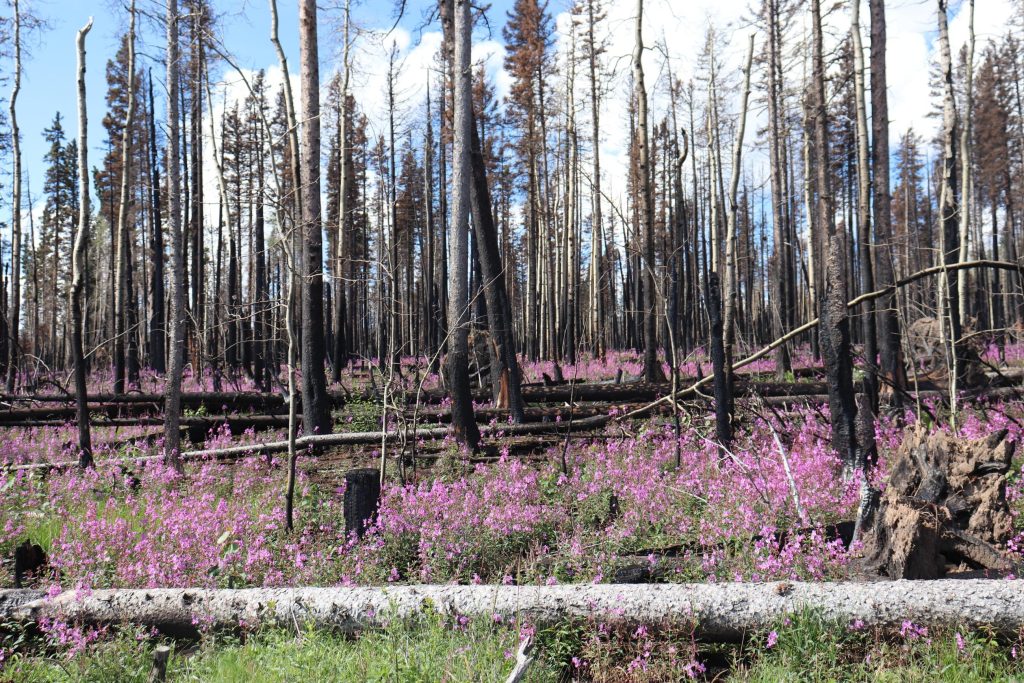This week, we’re running a series of interviews with New Mexico’s four gubernatorial candidates, each of whom answered questions about issues related to water, energy and climate change. Steve Pearce currently serves as New Mexico’s second district congressman and is the lone Republican running for New Mexico governor. Pearce is also a veteran of the Vietnam War and owned and operated an oilfield services company.
NMPR: Coming off a bad winter and with drought returning to the state, what critical water issues are you keeping an eye on right now in New Mexico?
Steve Pearce: Water is maybe the most important issue that New Mexico faces. First of all, the supply [and] cleanliness [of water] and then fighting off external threats. Those are three major issues.
On supply, it’s one reason we insist we clean up our national forests. The typical tree load in any acre of national forest a hundred years ago was 50 trees per acre. It’s somewhere between 2,500 and 5,000 trees per acre [now]. What they do is suck up the water and starve our aquifers and streams for water. So those two issues just connect very tightly.
We’ve got environmental groups now who are saying we should be restoring our watersheds, and [are] actively working with businesses in Albuquerque, and we’re trying to get more funding for them nationally, too, to help that restoration project.
Second, we’ve got to start cleaning up [the] water we have. We’ve got tremendous amounts of water in New Mexico, it’s just not all clean. Oil field production sites produce a lot of water along with the oil. And starting back in 1997, I had the first state legislative bill that would have started cleaning up water and giving it to the state. Eventually that was rejected, but it’s an issue now that I think is going to come full bore. We’re going to have outside attacks on water; other states, other regions. We’re going to have movements to shift water from one part of the state to another, and those become almost moral issues at some point. If we take away water then you’ve got nothing. Especially in the desert climate of New Mexico. So water is a huge issue.
NMPR: Revenue from oil and gas is an important part of New Mexico’s economy. But the industry also has environmental, public health and climate impacts. How will your administration balance these different issues?
Steve Pearce: I think that we’ve got the processes to keep everything in check. We just have to see that the work is at the proper balancing point, I guess, is the right way to look at it. So we want to keep our environment clean, but we also want to have jobs, and 30 to 35 percent of our state budget, 30 to 35 percent of our teacher pay, comes from oil and gas. So, we need to value the industry. But we also need to keep the environment clean. And that’s a balance point I’ve lived in my personal life. When my wife and I bought the property that we operated out of, until we sold our company, we could have grandfathered in a septic system, where they wash the oil and gas equipment. Instead we dug up a $30,000 hole at our expense to clean it up and then paid to connect ourselves into the sewer system as requested by the city. We could have grandfathered, but we decided not to. I think my parents generation just didn’t know better. My
generation began to really clean up some of the messes, and I think that the companies are becoming more engaged and more socially responsible all along. And that’s the balance point that we’re trying to reach.
NMPR: Over the past seven years, the state backed away from earlier commitments on climate change—whether it was reducing greenhouse gas emissions or studying the impacts of climate change and talking about some adaptation measures the state will have to take. What will your administration do to address mitigation and adaptation issues with respect to climate change In New Mexico?
Steve Pearce: I think the beginning point is again to realize that we’ve got to reach a balance in all quarters, that the most powerful thing we can do for the environment is have an all-of-the-above energy policy. I will support solar, support wind. I’ve been supporting those since I got to Congress, actually. But we’ll also realize that as mandates come from government, that it gets extremely costly, and the higher cost for electricity penalizes people at the bottom end of the economic ladder more than anyone else. That’s the balance point that we have to find. And some of the things that have been put into place drive the cost up to the consumers in New Mexico, and we’ll be very conscious of that. Just trying to make it where families can live, pay their bills, feed their family and continue on.
NMPR: Over the past seven years, state agencies focused on natural resources, like the New Mexico Environment Department, the Office of the State Engineer and the Interstate Stream Commission, have lost expert employees, seen budget cuts, stopped speaking with the press, and backed off some older programs. What direction will some of these agencies take under your leadership?
Steve Pearce: As we began to lose key members off the ISC, I sat down and talked to some of the ones departing and tried to get a feel for why. That loss of knowledge, that corporate knowledge, that disappears is something that concerns me. Not all things can be solved. But generally, you can track major evacuations of people out of companies or agencies to one or two single sources. And let’s just go and try to cure the problems.
We need the most expertise we can. For instance, the experts who will pursue the [U.S. Environmental Protection Agency], that release of heavy metals and the Gold King Mine spill. I think New Mexico should have experts, who watch and when the EPA says—like it did that they’ve cleaned all the stuff up—we send our experts out to turn the rocks over and say, ‘This is strange, here are all the heavy metals here.’ I was just over in Navajo reservation and farmers over there are not using the water. They don’t want to contaminate the land and don’t want to contaminate their livestock or their families with the heavy metals. So, having the experts to push back against a federal agency who number one, is responsible, and number two was irresponsible in saying they had cleaned everything up. I think it’s just vitally important.
NMPR: What steps will your administration take on the Texas v. New Mexico Supreme Court lawsuit, in the event it’s still ongoing when you’re governor?
Steve Pearce: I’ve watched the case very closely. I feel like that we could have come in with a little more horsepower into the Supreme Court. People came [to my Washington D.C. office] just after the hearing, in other words they were watching at the Supreme Court and walked over to my office, and said that Texas had some of the best legal experts in the world on water, and New Mexico was not able to keep pace with them.
I think probably the main thing to do is make sure when we get into these interstate compacts that we have a knowledge base and that we go after the best available talent to represent our positions.
New Mexico, historically, even back when the Supreme Court was trying to decide on the allocation of water on the Pecos [River] a hundred years ago, it’s reported by New Mexico historians that New Mexico’s lawyers didn’t even show up in court. So Texas acquired the ten wettest years on record, and so now we have extraordinarily high delivery rate because of a failure back then. Let’s not keep passing on problems to future generations because of our lack of understanding, our lack of expertise.
That will be a major focus for me as we have these agreements. Because the pressure on water is just going to continue to grow. New Mexico, for instance, was given its allocation, and I think they had something like 300,000 people or something like that, back a hundred years [ago], and now we have ten times that population, three million people. So they’re asking for more water on the Rio Grande. And we just have to be aware that these stresses are going to get much worse.
Water is life. Everything else might be strategic. But water is life. And if we don’t understand that correlation and understand that in an arid climate with scarce water resources that we must be experts. I would even establish an Office of Excellence on Water [and I would expect that office to be a leader on water in the U.S. and the world]. We should be the best in the world at water. That would be an objective I would have.
NMPR: What didn’t I ask you about, or what environment or natural resource issues in New Mexico don’t get enough attention?
Steve Pearce: Constantly we’re wrestling with the federal agencies on access. We’ve got a project right now which reportedly could be anywhere from 100 jobs to 4,000 jobs, and they need easement across 600 feet of [U.S. Bureau of Land Management] right-of-way or property. And so that intersection between the federal government and our jobs in the state is something that I’ve worked on for the past 14 years and will continue that work.
We want our environment clean. We want to protect the people. We want our air, water, soil, all of that protected. But at the same time, we need jobs. When I stand down in Southeast New Mexico, and we’re looking at the number of rigs running in New Mexico versus those just across the border. Sometimes, we’ve had less than a third because the Texas side doesn’t have to wrestle with the public lands issue, doesn’t have to wrestle with the agencies who just freeze down the permitting process. And so, always trying to see that we follow the law, but that we’re able to develop these resources-based jobs that are critical to a state like New Mexico.
A note from NMPR: All of this week’s candidate Q&A’s were edited for clarity and length, although we did not edit the meaning of candidates’ answers. We did not include, however, tangents or off-topic issues candidates raised during the course of the conversations. It’s also important to note that the candidate’s answers aren’t annotated and we don’t point out any possible inaccuracies or misstatements.






















